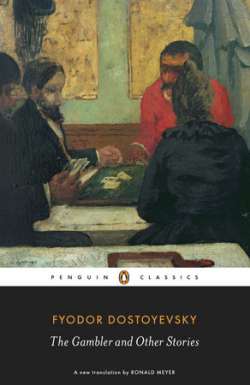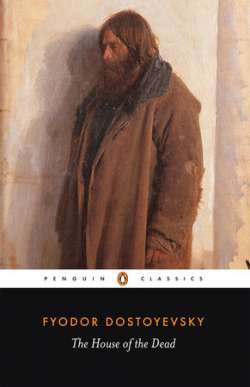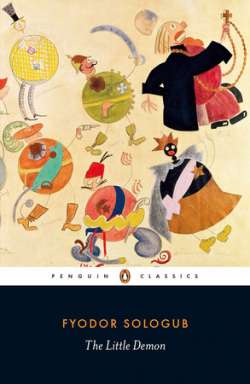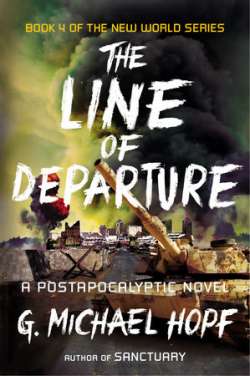« Return to all search results
Title Search Results

Zen-Noir master Nakamura returns to the Tokyo of The Thief, where a young grifter named Yurika finds herself in a dangerous game of cat-and-mouse with the shadowy crime lord Kizaki.Yurika is a freelancer in the Tokyo underworld. She poses as a prostitute, carefully targeting potential johns, selecting powerful and high-profile men. When she is alone with them, she drugs them and takes incriminating photos to sell for blackmail purposes. She knows very little about the organization she’s working for, and is perfectly satisfied with the arrangement, as long as it means she doesn’t have to reveal anything about her identity, either. She operates alone and lives a private, solitary life, doing her best to lock away painful memories.But when a figure from Yurika’s past resurfaces, she realizes there is someone out there who knows all her secrets: her losses, her motivations, her every move. There are whispers of a crime lord named Kizaki—“a monster,” she is told—and Yurika finds herself trapped in a game of cat and mouse. Is she wily enough to escape one of the most sadistic men in Tokyo?

“What I am writing now is a tendentious thing,” Dostoyevsky wrote to a friend in connection with his first outline for The Devils. “I feel like saying everything as passionately as possible. (Let the nihilists and the Westerners scream that I am reactionary!) To hell with them. I shall say everything to the last word.” As Dostoyevsky predicted, The Devils, or The Possessed, was indeed denounced by radical critics as the work of a reactionary renegade. But radicals aside, it enjoyed great success both for its literary power and for its explicit and provocative politics; and for its story of Russian terrorists plotting violence and destruction, only to murder one of their own number. “Stavrogin’s Confession”, the section omitted when the novel first appeared, is included as an appendix to this volume.

The Gambler and Other Stories is Fyodor Dostoyevsky's collection of one novella and six short stories reflecting his own life - indeed, 'The Gambler', a story of a young tutor in the employment of a formerly wealthy Russian General, was written under a strict deadline so he could pay off his roulette debts. This volume includes 'Bobok', the tale of a frustrated writer visiting a cemetery and enjoying the gossip of the dead; 'The Dream of a Ridiculous Man', the story of one man's plan to commit suicide and the troubling dream that follows, as well as 'A Christmas Party and a Wedding', 'A Nasty Story' and 'The Meek One'.

‘Here was the house of the living dead, a life like none other upon earth’In January 1850 Dostoyevsky was sent to a remote Siberian prison camp for his part in a political conspiracy. The four years he spent there, startlingly re-created in The House of the Dead, were the most agonizing of his life. In this fictionalized account he recounts his soul-destroying incarceration through the cool, detached tones of his narrator, Aleksandr Petrovich Goryanchikov: the daily battle for survival, the wooden plank beds, the cabbage soup swimming with cockroaches, his strange ‘family’ of boastful, ugly, cruel convicts. Yet The House of the Dead is far more than a work of documentary realism: it is also a powerful novel of redemption, describing one man’s spiritual and moral death and the miracle of his gradual reawakening.This edition includes notes and an introduction discussing the circumstances of Dostoyevsky’s imprisonment, the origins of the novel in his prison writings, and the character of Aleksandr Petrovich.

Summoned to the country estate of his wealthy uncle Colonel Yegor Rostanev, the young student Sergey Aleksandrovich finds himself thrown into a startling bedlam. For as he soon sees, his meek and kind-hearted uncle is wholly dominated by a pretentious and despotic pseudo-intellectual named Opiskin, a charlatan who has ingratiated himself with Yegor’s mother and now holds the entire household under his thumb. Watching the absurd theatrics of this domestic tyrant over forty-eight explosive hours, Sergey grows increasingly furious - until at last, he feels compelled to act. A compelling comic exploration of petty tyranny, The Village of Stepanchikovo reveals a delight in life’s wild absurdities that rivals even Gogol’s. It also offers a fascinating insight into the genesis of the characters and situations of many of Dostoyevsky’s great later novels, including The Idiot, Devils and The Brothers Karamazov.

A blackly comic Russian classic about a schoolteacher’s descent into sadism, arson, and murderMad, lascivious, sadistic, and ridiculous, the provincial schoolteacher Peredonov torments his students and has hallucinatory fantasies about acts of savagery and degradation, yet to everyone else he is an upstanding member of society. This grotesque mirror of a spiritually bankrupt society is arguably the finest Russian novel to have come out of the Symbolist movement.For more than sixty-five years, Penguin has been the leading publisher of classic literature in the English-speaking world. With more than 1,500 titles, Penguin Classics represents a global bookshelf of the best works throughout history and across genres and disciplines. Readers trust the series to provide authoritative texts enhanced by introductions and notes by distinguished scholars and contemporary authors, as well as up-to-date translations by award-winning translators.

At the dawn of a reimagined 20th century, one girl must become the reluctant symbol of a new world.The year is 1908. Seventeen-year-old Rosalind Wallace’s blissful stay in England with her best friend, Cecily de Vere, has come to an abrupt end. As a publicity stunt, her industrialist father has booked Rosalind on the maiden voyage of his fabulous Transatlantic Express, the world’s first railroad to travel under the sea—without asking. Rosalind is furious. But lucky for her, Cecily and her handsome older brother, Charles, volunteer to accompany her home.Fun turns to worry when Charles disappears on the station platform. To Rosalind’s surprise, Cecily isn’t concerned about her brother. And when Cecily runs into an old friend onboard, another belle of the European aristocracy, she appears to forget about Charles altogether.Then, deep under the Atlantic, Cecily and her housemaid, Doris, are found stabbed to death in their state room. Rosalind is now trapped on the train—where nothing is as it seems—in a deadly fight to clear herself of her friend’s murder and to thwart a sinister enemy whose ambitions she can only imagine.

A gripping new novel from one of the best-known names in survivalist fiction.Former Marine-turned-author, G. Michael Hopf grabs readers from page one with his breathtaking blend of action, adventure, and political intrigue. The End—the first book in Hopf ’s New World series—has sold more than 50,000 copies, and word of mouth is quickly building on the series as a whole. In the fourth book, The Line of Departure, the United States is on the brink of total anarchy in the wake of a super-EMP attack. Gordon Van Zandt and his family have managed to beat the odds so far, but can they survive once war erupts?From the Trade Paperback edition.

Ebenezer Le Page, cantankerous, opinionated, and charming, is one of the most compelling literary creations of the late twentieth century. Eighty years old, Ebenezer has lived his whole life on the Channel Island of Guernsey, a stony speck of a place caught between the coasts of England and France yet a world apart from either. Ebenezer himself is fiercely independent, but as he reaches the end of his life he is determined to tell his own story and the stories of those he has known. He writes of family secrets and feuds, unforgettable friendships and friendships betrayed, love glimpsed and lost. The Book of Ebenezer Le Page is a beautifully detailed chronicle of a life, but it is equally an oblique reckoning with the traumas of the twentieth century, as Ebenezer recalls both the men lost to the Great War and the German Occupation of Guernsey during World War II, and looks with despair at the encroachments of commerce and tourism on his beloved island. G. B. Edwards labored in obscurity all his life and completed The Book of Ebenezer Le Page shortly before his death. Published posthumously, the book is a triumph of the storyteller’s art that conjures up the extraordinary voice of a living man."Imagine a weekend spent in deep conversation with a superb old man, a crusty, intelligent, passionate and individualistic character at the peak of his powers as a raconteur, and you will have a very good ideas of the impact of The Book of Ebenezer Le Page...It amuses, it entertains, it moves us...” –The Washington Post"A true epic, as sexy as it is hilarious, it seems drenched with the harsh tidal beauties of its setting...For every person nearing retirement, every latent writer who hopes to leave his island and find the literary mainland, its author–quiet, self-sufficient, tidy Homeric–remains a patron saint." –Allan Gurganus, O Magazine

G.K. Chesterton's The Man Who Was Thursday is a thrilling novel of deception, subterfuge, double-crossing and secret identities, and this Penguin Classics edition is edited with an introduction by Matthew Beaumont. The Central Anarchist Council is a secret society sworn to destroy the world. The council is governed by seven men, who hide their identities behind the names of the days of the week. Yet one of their number - Thursday - is not the revolutionary he claims to be, but a Scotland Yard detective named Gabriel Syme, sworn to infiltrate the organisation and bring the architects of chaos to justice. But when he discovers another undercover policeman on the Council, Syme begins to question his role in their operations. And as a desperate chase across Europe begins, his confusion grows, as well as his confidence in his ability to outwit his enemies, unravelling the mysteries of human behaviour and belief in a thrilling contest of wits. But he has still to face the greatest terror that the Council has: a man named Sunday, whose true nature is worse than Syme could ever have imagined ... In his introduction, Matthew Beaumont examines the book's themes of identity and confrontation, and explores its intriguing title. This edition also contains a chronology, notes and suggested further reading. G.K. Chesterton (1874-1938) attended the Slade School of Art, where he appears to have suffered a nervous breakdown, before turning his hand to journalism. A prolific writer throughout his life, his best-known books include The Napoleon of Notting Hill (1904), The Man Who Knew Too Much (1922) and the Father Brown stories. Chesterton converted to Roman Catholicism in 1922 and died in 1938. If you enjoyed The Man Who Was Thursday, you might enjoy Joseph Conrad's The Secret Agent, also available in Penguin Classics. 'The most thrilling book I have ever read' Kingsley Amis, author of Lucky Jim
